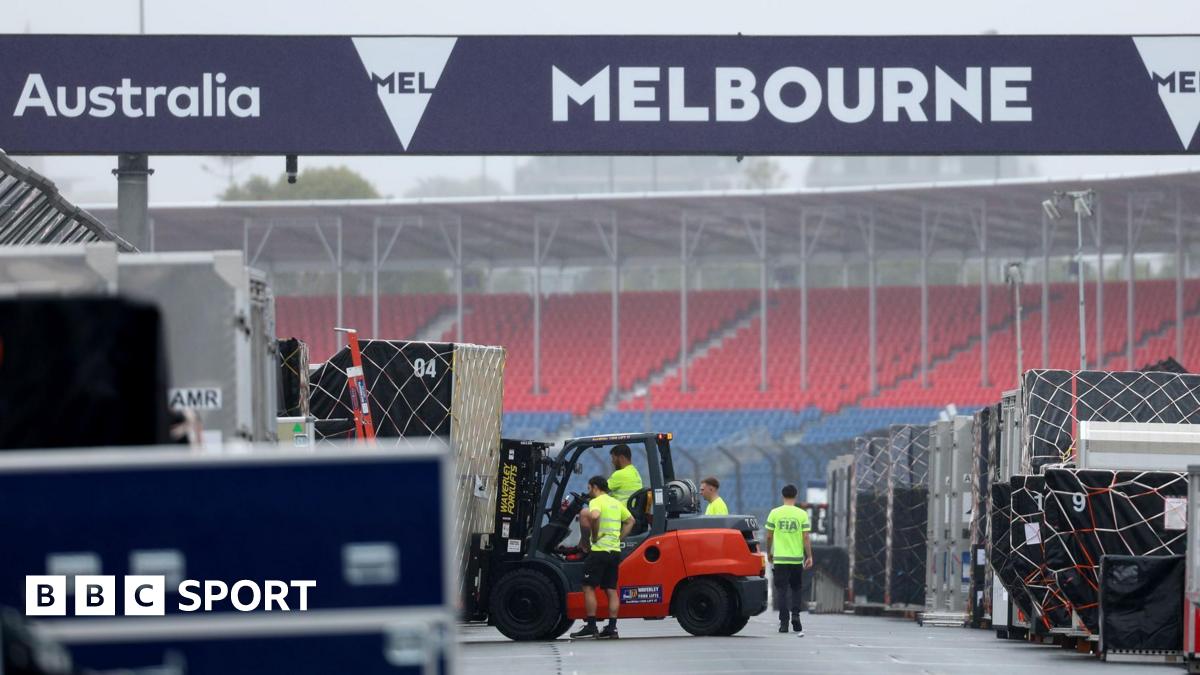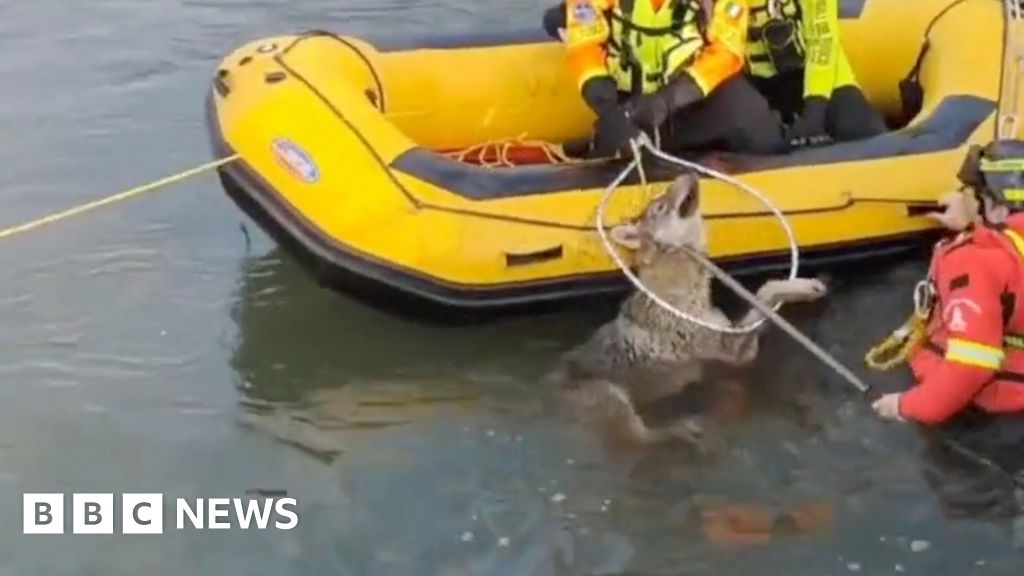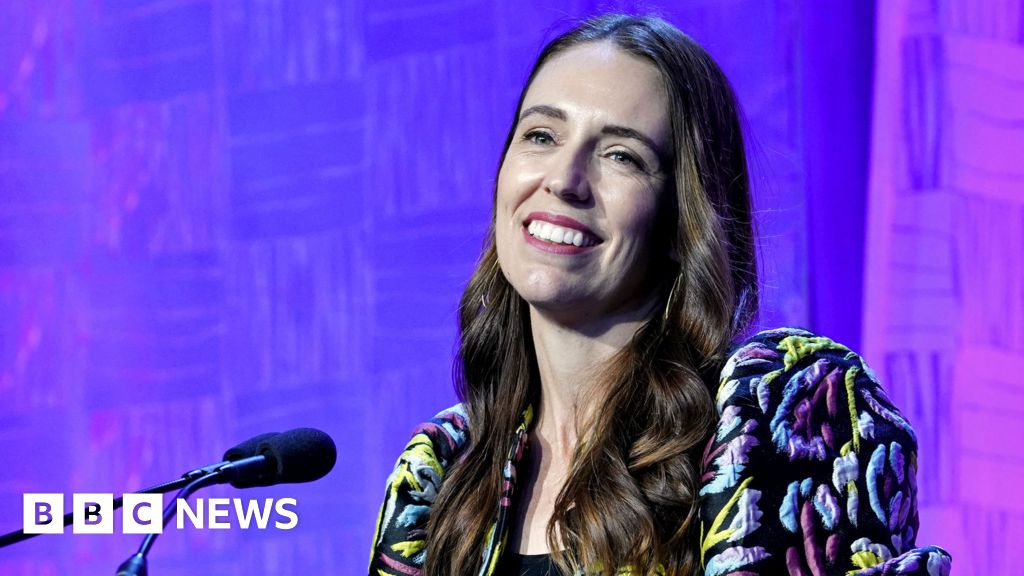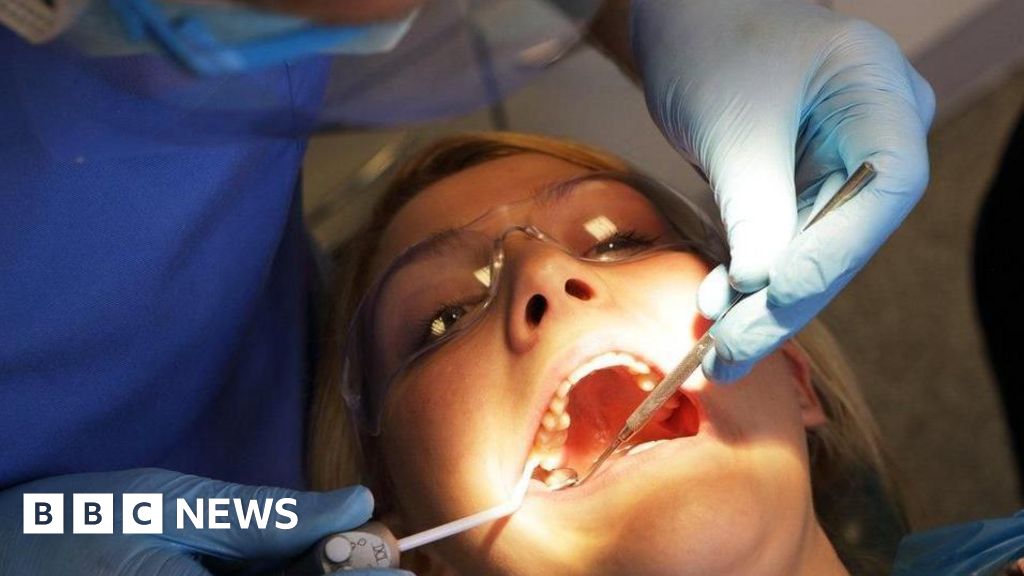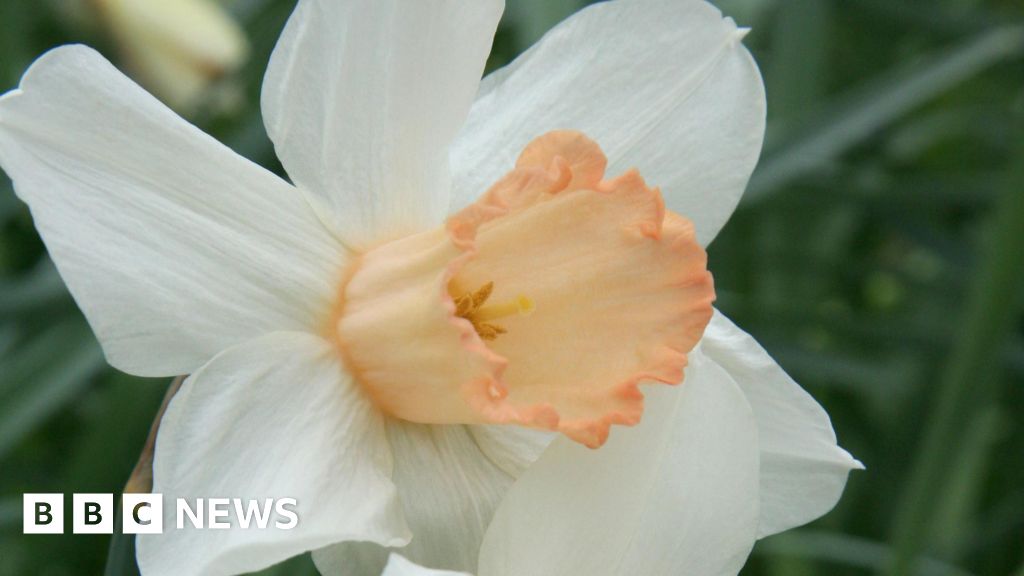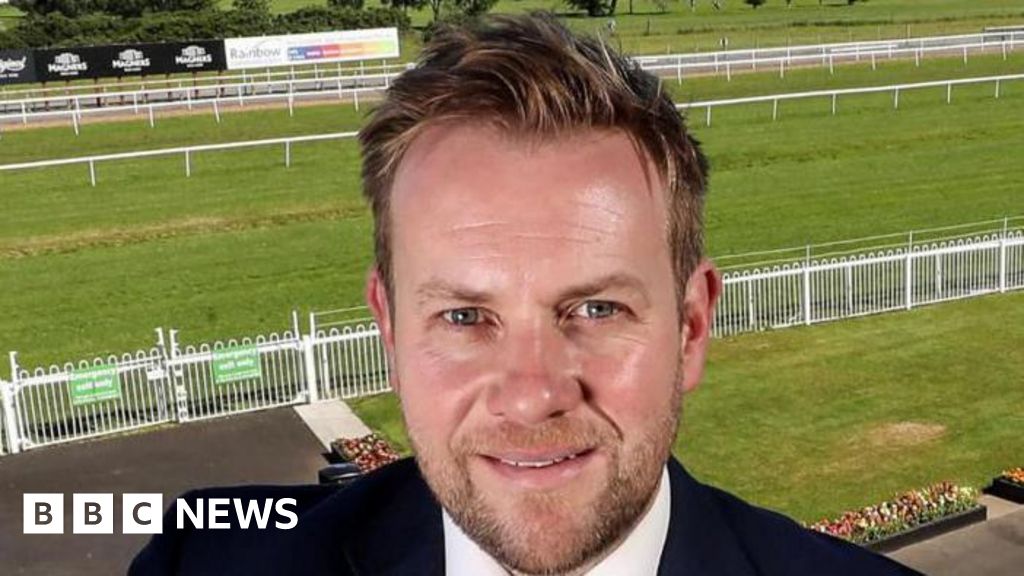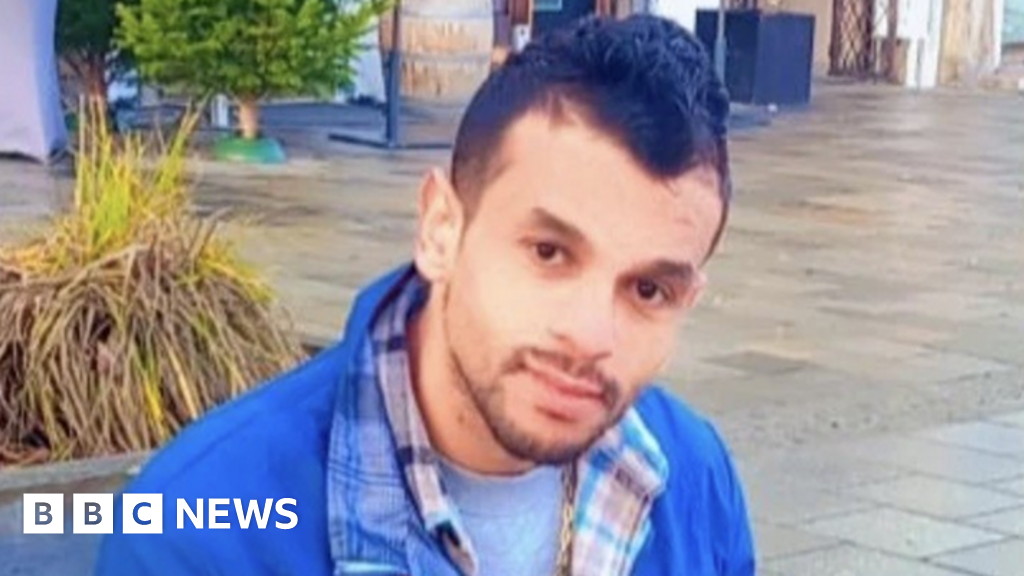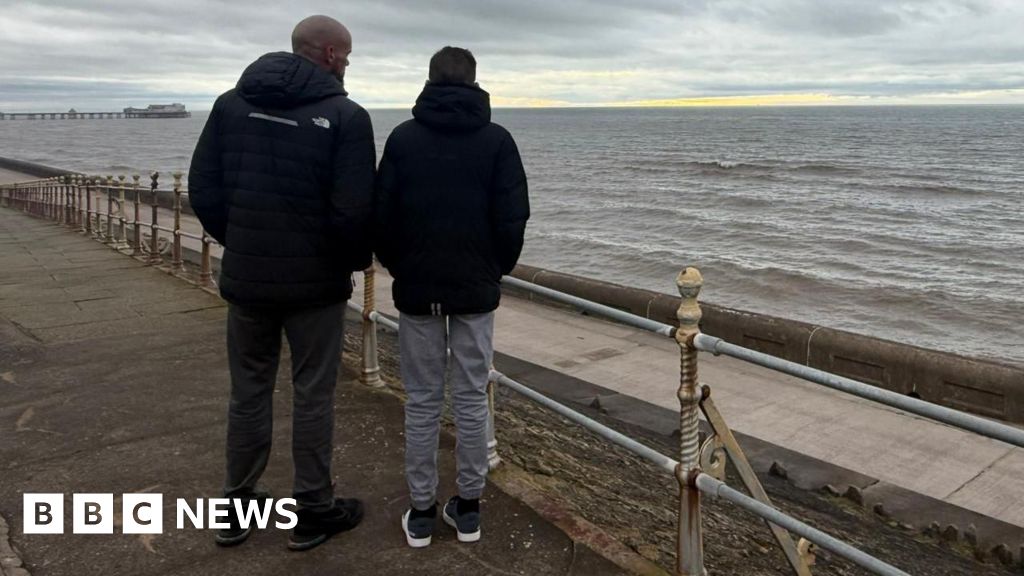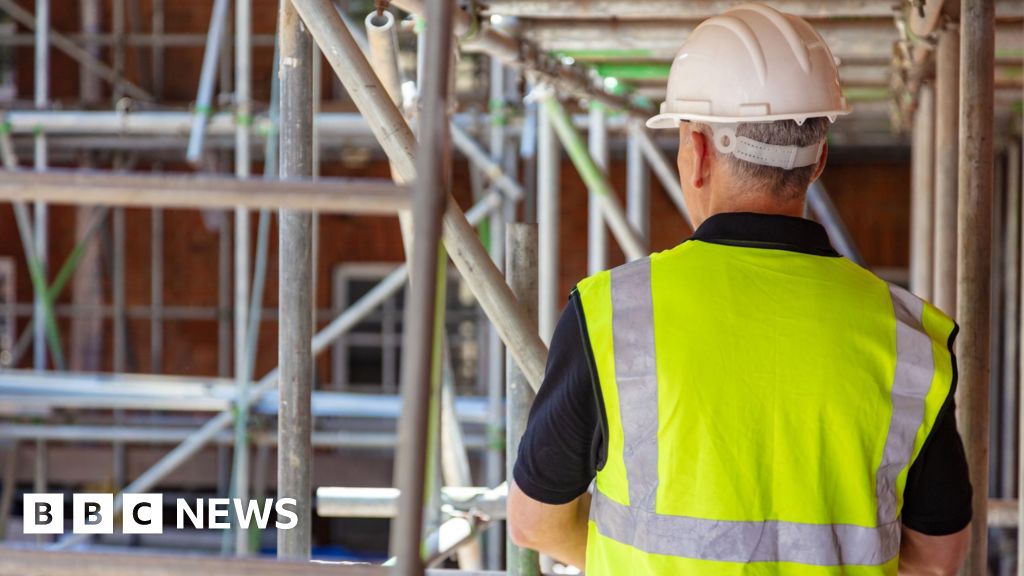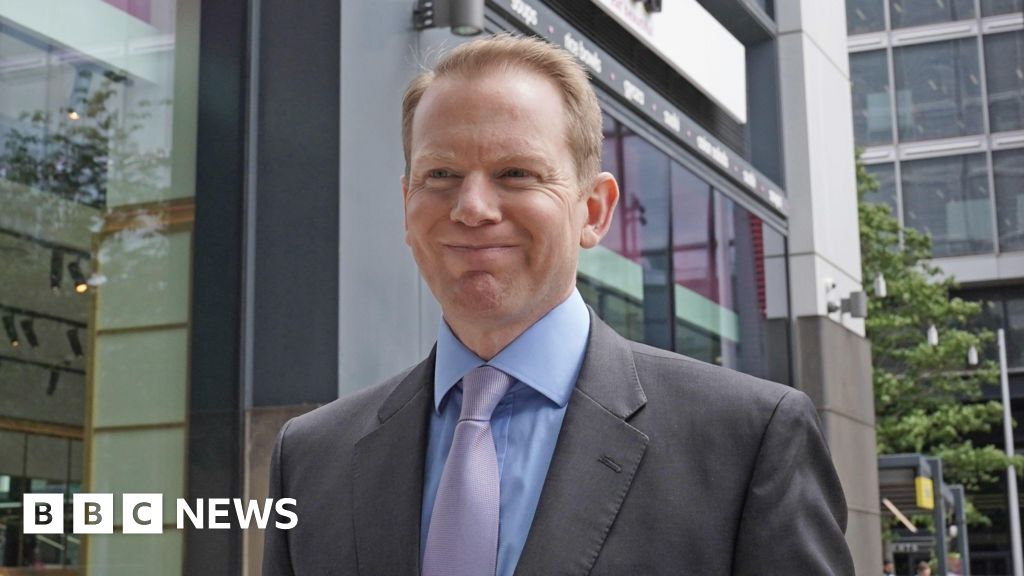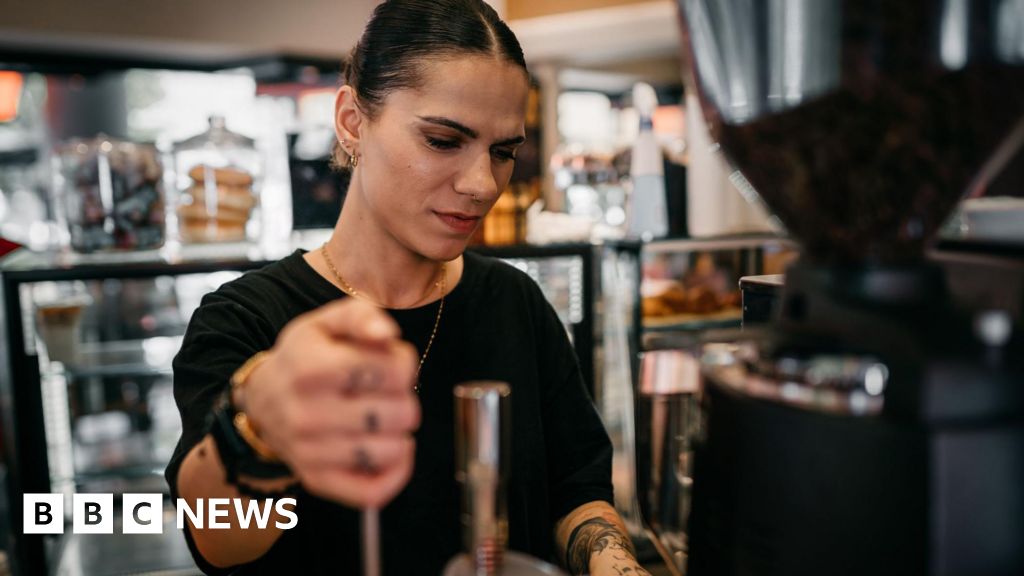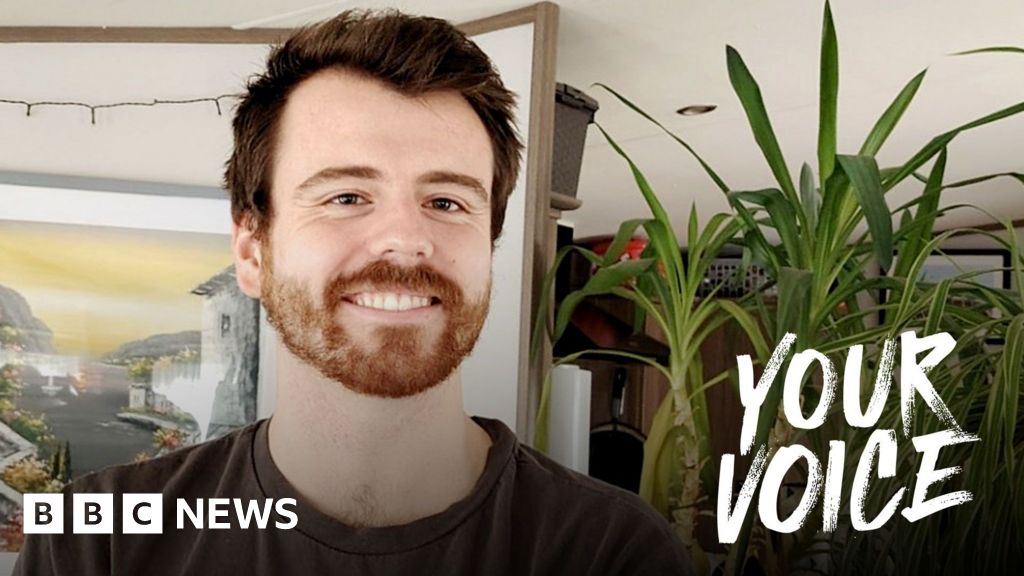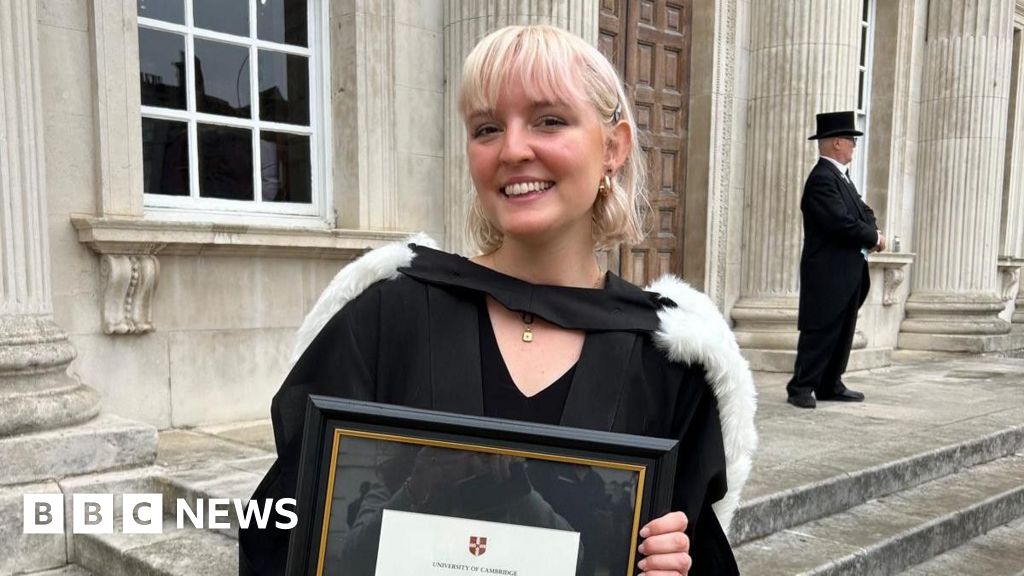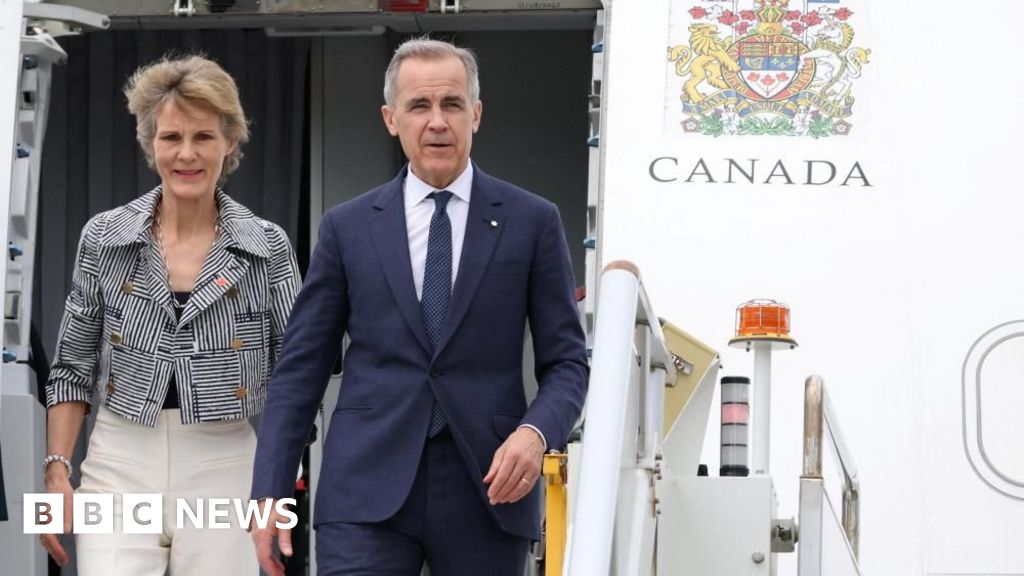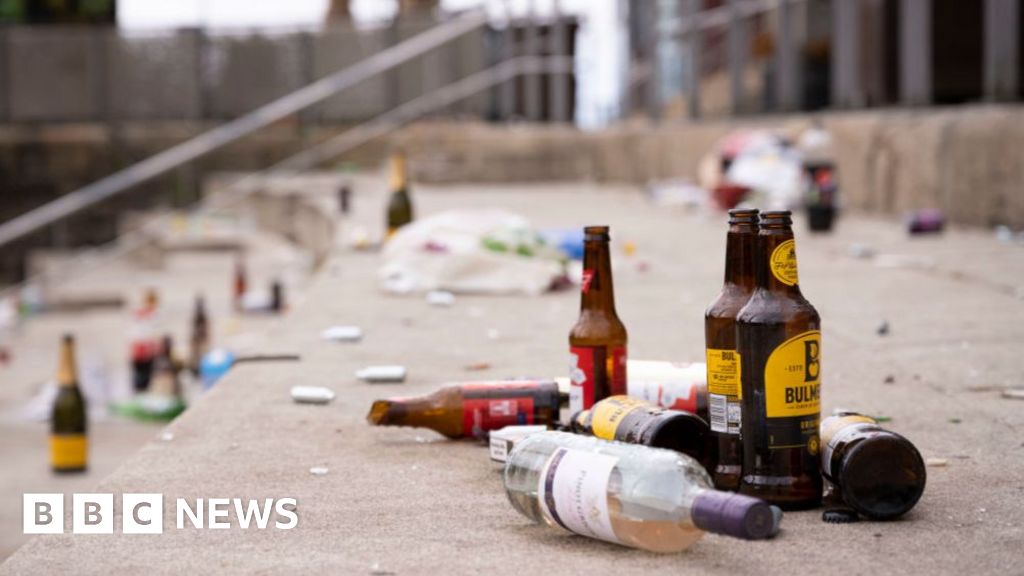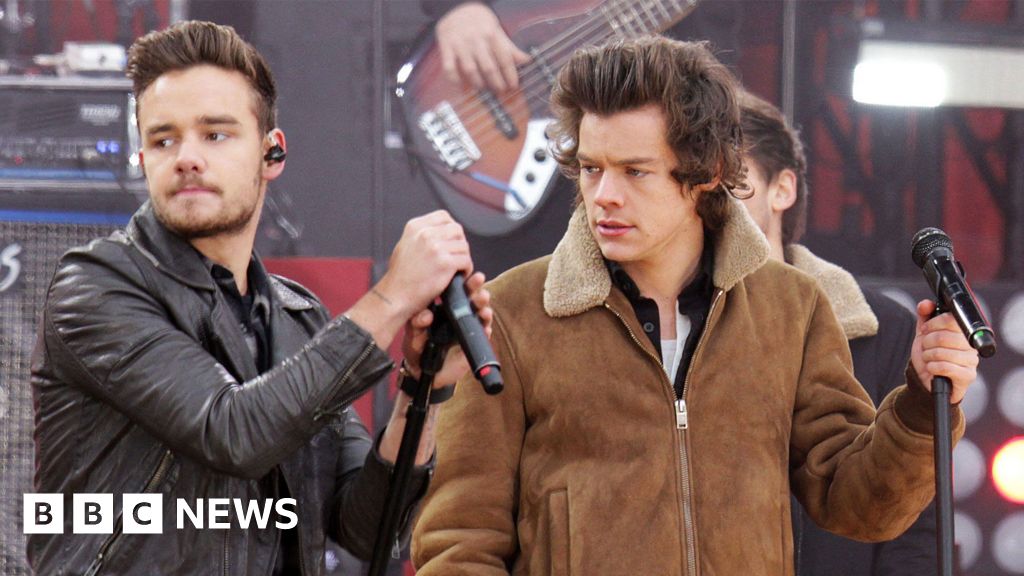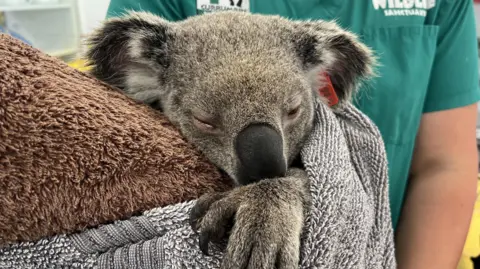 Tiffanie Turnbull/BBC
Tiffanie Turnbull/BBCOn the table, unconscious and stretched out on a pillow, Joe Mangy looks deceptively peaceful. The koala’s watery, red-rimmed eyes are the only sign of the disease at war with his body.
Tubes snarl out of a mask covering his face as a vet tech listens to his chest with a stethoscope. He is not healing as well as they had hoped.
Eight days earlier, Joe Mangy – who is about two years old – was found wandering in the middle of a suburban road. Dazed and confused, eyes nearly glued shut with mucus, he was rushed here, to the Currumbin Wildlife Sanctuary’s hospital.
Enveloped by rainforest on Queensland’s Gold Coast, the park is full of koalas like this.
Outside the clinic, in a “Koala Rehab Centre” faintly perfumed by eucalyptus leaves, is a three-year-old recovering from a hysterectomy. “It saved her life… but she can’t reproduce,” the head vet Michael Pyne says.
Another male koala stares blankly through narrowed slits. His left tear duct is so inflamed his eyeball is barely visible.
This hospital is ground zero of a grim chlamydia epidemic which is killing thousands of koalas and making even more sterile, pushing the national icons to the brink of extinction.
But it’s also at the core of desperate bid to save them with a vaccine – frustrated efforts which, after over a decade, are still tied up in regulation and running out of both time and money.
Biggest and deadliest threat
Even a few decades ago, spotting a koala snuggled in a backyard tree was nothing out of the ordinary. They were plentiful on the country’s populous east coast.
But in recent times the species has been in dramatic decline – in some places plummeting by 80% in just 10 years.
Land clearing and urbanisation are leaving the marsupials hungry and homeless, while natural disasters are drowning or cooking them en masse.
“[But] it’s the chlamydia that shot up tremendously – almost exponentially,” says Dr Pyne, who has run the Currumbin clinic for more than 20 years.
“You get days where you’re euthanising heaps of koalas that just come in completely ravaged.”
Estimates vary greatly – koalas are famously difficult to count – but some groups say as few as 50,000 of the animals are left in the wild and the species is officially listed as endangered on most of the eastern seaboard. There are now fears the animals will be extinct in some states within a generation.
Dr Pyne wistfully recounts “the early days” when his hospital only saw a handful of koalas a year.
They now see 400.
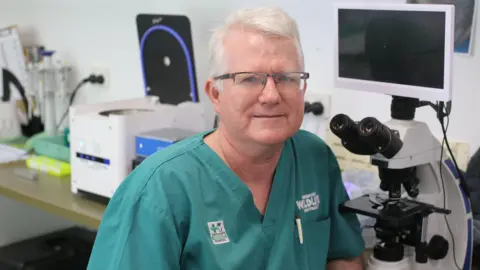 Tiffanie Turnbull/BBC
Tiffanie Turnbull/BBCSo many come through the door that the team has started giving them two names, a vet nurse says, cradling Joe Mangy as he wakes from the anaesthetic. His last name is a nod to the state of his eyes when he first arrived, she explains.
Of the top reasons koalas are brought into wildlife hospitals – vehicle strikes, pet attacks and chlamydia – the bacterial infection is the biggest and deadliest.
It results in conjunctivitis for koalas like Joe Mangy, but presents as an infection of the genitals and urinary system for others. Particularly unlucky animals, get both at the same time.
At its worst, the ocular form can be so bad koalas are blinded and starve to death, while the urogenital infection produces giant fluid-filled cysts so “nasty” everyday bodily functions like passing urine make the animals cry out in pain.
“Their reproductive system falls apart,” Dr Pyne explains.
If caught early enough, treatment is an option, but that in itself is a potentially fatal “nightmare” as the antibiotics destroy the gut bacteria which allow koalas to digest otherwise toxic eucalyptus leaves – their main food source.
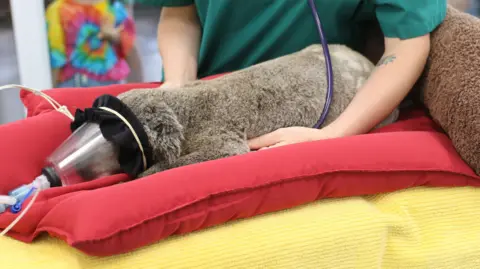 Tiffanie Turnbull/BBC
Tiffanie Turnbull/BBCOn a species level though, the disease, which spreads through bodily fluids, causes even greater ruin.
Chlamydia is not uncommon in other animals – koalas are suspected to have first caught it from livestock – but the spread and intensity of the disease amongst the marsupials is unmatched.
Experts estimate around half of koalas in Queensland and New South Wales could be infected, but just a suburb away from Currumbin, in Elanora, that has climbed beyond 80%.
It is the most diseased population in the region and numbers have been “falling off a cliff”, Dr Pyne says. “It’s a disaster.”
Enter the Queensland University of Technology (QUT) and their vaccine, which aims to prevent and treat chlamydia in koalas and has been almost two decades in the making.
Alongside Currumbin, they’re trying to save the Elanora koalas from oblivion: capturing 30 youngsters and vaccinating them, before recatching them at intervals over three years to track their health.
So far only three of the vaccinated koalas in this research trial have contracted the disease, though all recovered, and encouragingly, more than two dozen joeys have been born – bucking the infertility trend.
“There’s generations of koalas now that have come through. We’ve got grand joeys,” Dr Pyne says excitedly.
Currumbin has also been vaccinating every koala which comes through their hospital, and have reached about 400 koalas this way.
But treating and vaccinating each koala with chlamydia costs them about A$7,000 (£3,500, $4,500). Capturing, jabbing, and tracking each wild Elanora koala is basically double that.
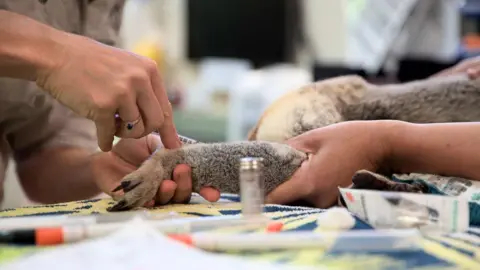 UniSC
UniSCTwo hours away, researchers at the University of the Sunshine Coast (UniSC) are doing their best to flatten the wave of disease too, with a separate vaccine.
They inoculate about 2,000 koalas a year through wildlife hospital trials and tack themselves onto development projects or research studies in the region that involve their capture.
They’ve just wrapped a decade’s-worth of those projects into one study of more than 600 animals – the largest and longest of its kind.
Incredibly, deaths dropped by two thirds among vaccinated koalas.
Molecular biologist Samuel Phillips tells the BBC about one local koala population they studied which was at risk of extinction. Authorities are now looking at translocating some animals so they don’t overpopulate the area.
“It turned it around completely.”
And crucially, the study found that the koalas that did contract chlamydia were doing so later in life, after their peak breeding years had begun.
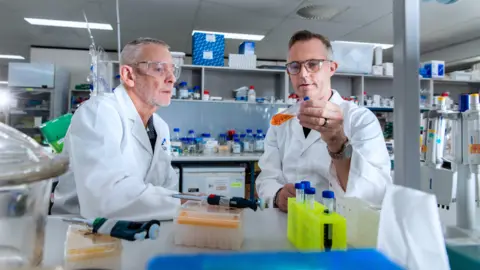 UniSC
UniSCDr Phillips and his research partner Peter Timms have now submitted their vaccine to the federal regulator for approval but say they’re keeping their hopes in check.
“There’ll be hurdles,” Dr Timms explains.
In the meantime, for their small, overstretched team, dividing time and funding is an impossible balance. Do they involve themselves in as many trials as possible to help small groups of koalas now, or do they devote their efforts to advancing the tedious research and approval process which could help a huge cohort of them down the track?
“People come to us semi-regularly and say, ‘Can we vaccinate more koalas?’ And the answer at some point is ‘No’, because otherwise we’re just spending all our time and energy doing [that],” Dr Timms says.
‘Death by a thousand cuts’
It has now been a decade since these two research teams first started seeing results, and there is still no real timeline on when a jab will be ready.
And even when it is, there are huge barriers to any roll out.
While making the vaccine isn’t that costly, finding, capturing, and vaccinating wild koalas is extraordinarily expensive and time-consuming.
Dr Phillips says they would have to strategically target select populations, though they’re not yet sure how many koalas in each they’d need to treat to reverse decline.
That challenge will be doubly complicated with the QUT vaccine, though, because it requires two doses, as opposed to UniSC’s single-shot formula.
The QUT team has been developing an implant – inspired by a human contraceptive device – that dissolves after four weeks to provide the booster. It will be trialled on Currumbin’s captive koalas next year.
Then there is the question of funding, which has been, and continues to be, fickle. Both vaccine developers provide their shots to wildlife hospitals and research trials for free, relying on individual donors, generosity from their universities, and the unpredictable whims of election cycles.
State and federal governments are the biggest financial backers of the vaccine projects – last year Canberra gave QUT and UniSC A$750,000 each.
“No-one wants to imagine an Australia without koalas,” Environment Minister Tanya Plibersek said at the time.
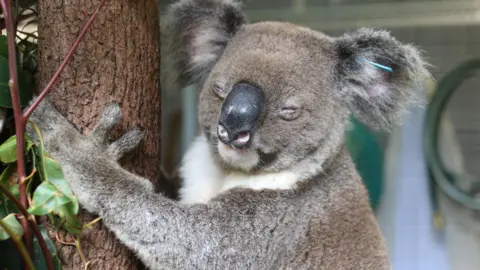 Tiffanie Turnbull/BBC
Tiffanie Turnbull/BBCBut government contributions are random, and never quite enough.
“I cannot believe somebody will not come along tomorrow and say ‘You need to vaccinate? Here’s my cheque to cover the next 10 years’. But we can’t find them,” Dr Timms says.
However, the biggest barrier is the mountain of red tape researchers are yet to cut through.
Both groups have conservation charities and wildlife hospitals knocking down the door, desperate for access, but until they go through the “painful” approval process, their hands are largely tied.
“[It’s] a critical step that is just taking too long. It kills me,” Dr Pyne says.
“We’ve kind of passed it being urgent. It was urgent probably 10 years ago.”
Adding to their despondency, is a fact all involved stress repeatedly: the vaccine is simply not enough to save the species.
And so even the lucky koalas like Joe Mangy, who dodge death by chlamydia and return to the wild, still must face off against a myriad of other mortal threats.
“It’s death by a thousand cuts, right?” Dr Timms says.

